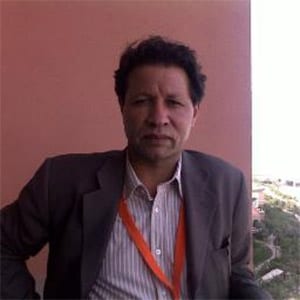As Jamal Khashoggi’s colleagues, we are required to defend his right to justice and must do all we can to ensure that a public trial is held in Istanbul, open to the media, for the Saudi death squad that came from Riyadh to kill this distinguished journalist and writer. This obliges and compels us, professionally and morally, to take action in order to follow up on this case from its legal aspect, far from all of the bodies that deal with it from this angle, including the Turkish government, on whose territory the murder was committed. It is our duty, from a moral and professional standpoint, to have a special human rights argument based on the right to defend the freedom of our profession, which is recognised by the laws on the one hand.
On the other hand, as we work in this region, which does not respect the press, does not recognise freedom, suffers the horror of tyranny, and views journalists as cheap workers that can be hired by the rulers and the rich, and who could be thrown in the street, imprisoned, or killed if they cross the line and voice a different opinion.
The crime committed against Jamal Khashoggi affects every journalist and writer who respects the profession, the basic condition for which is freedom. Therefore, we must stand today before two important issues: the freedom of press and the freedom of journalists. The brutal crime committed by the Saudi Crown Prince, Mohammad Bin Salman, was a on the face of everyone and implicitly declares that the freedom of the press is an idealistic notion that has no place in the eyes of this ruler. This crime also suggests that the lives of journalists have no value, no matter how far up the ranks they go.
Read: The repercussions of killing Khashoggi
We must commit to keeping his case alive in all the profession’s forums and those concerned with freedoms. This requires action by the Turkish-Arab Media Association, as it is a Turkish institution concerned with the affairs of Arab journalists in Turkey, on the one hand, and because the crime took place on Turkish soil, on the other. The cooperation of the Arab press with the Turkish-Arab Media Association can provide a framework to follow up the case in international forums.
Since the Jamal Khashoggi case is a political crime due to the freedom of opinion and expression, we must go to the United Nations and the International Criminal Court and deal with it as a crime against humanity. The international press agencies, Amnesty International, Human Rights Watch and the UN Human Rights Council will support this endeavour and support it.
Jamal Khashoggi’s assassination is not the first of its kind, nor will it be the last. It is at the heart of the issue of freedom of opinion, which has caused many of our colleagues to languish in Egyptian and Emirati prisons for years. None of the international action to respect the rights of Emirati writer, journalist and civil activist, Ahmed Mansour, who has spent the last ten years being moved from one Emirati to prison to another, have been successful. He is still imprisoned due to baseless fabricated charges. His future was destroyed and his family was brutally harassed.
It would be very dangerous if the murder of Jamal Khashoggi passes without punishment or without being settled between the countries. The blood of the journalist and freedom of the press would become a substance for political and commercial dealings, and nothing can expose this fact other than solidarity amongst journalists and those who are concerned with the freedom of the profession, expression and opinion.
Read: Son of Saudi journalist Khashoggi has left Saudi Arabia
It is important for Saudi Arabia not to repeat the crime with another journalist, as stated by Foreign Minister Adel Al-Jubeir on Tuesday. However, Saudi Arabia must take concrete steps towards the respect of the freedom of opinion and the press, beginning with releasing the prisoners of conscience arrested by Bin Salman since he came to power because of his fear of opposing opinions. This is the least price that Saudi Arabia can pay, and should consider it a lesson learned that becomes an example for all of the region’s rulers who have no regard or respect for the freedom of the press and the protection of the lives of journalists.
This article first appeared in Arabic in Al-Araby Al-Jadeed on 26 October 2018
The views expressed in this article belong to the author and do not necessarily reflect the editorial policy of Middle East Monitor.


![Jamal Khashoggi speaking at AlSharq Forum conference [AlSharq Forum]](https://i0.wp.com/www.middleeastmonitor.com/wp-content/uploads/2018/10/WhatsApp-Image-2018-10-22-at-10.29.59.jpeg?fit=1200%2C800&ssl=1)









